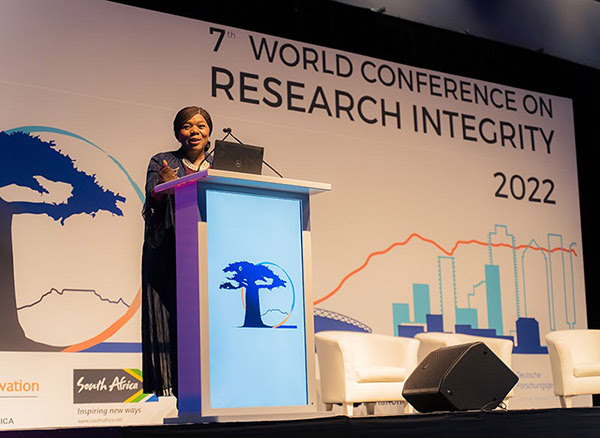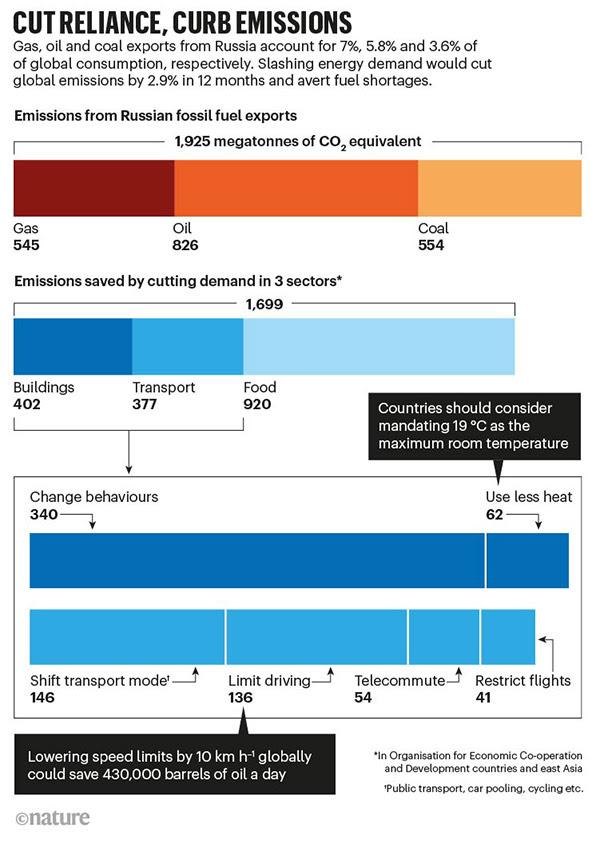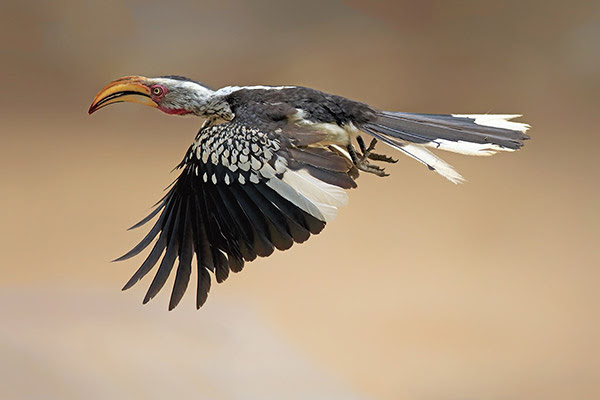¡¡ Scientists doubt Google chat bot is ‘sentient’,... Hello Nature readers, Today we visit ‘cloud labs’, where wet-laboratory experiments are done by machines.,...¡¡.
Scientists doubt Google chat bot is ‘sentient’
| 19:19 (hace 51 minutos) |   | ||
| ||||
| |||||
| |||||
Hello Nature readers, | |||||
 | |||||
| South Africa’s former public protector Thuli Madonsela delivered a keynote speech at the seventh World Conference on Research Integrity. (University of Cape Town) | |||||
The path to fairer global collaborationsResearchers at the seventh World Conference on Research Integrity in Cape Town, South Africa, have been hammering out the equity issues plaguing science partnerships that span the global north–south divide. A soon-to-be-published document called the Cape Town Statement will offer guidance on how researchers from low- and middle-income countries can become equal partners in international projects. The organizers hope that having a set of principles for fair and equitable partnerships will help scientists from the global south to speak out against unfair practices. Nature | 6 min read | |||||
Scientists doubt Google chat bot is ‘sentient’A Google engineer has reportedly been placed on paid administrative leave after claiming that an artificial-intelligence system had become sentient. Google says that engineer Blake Lemoine violated its confidentiality policy by releasing transcripts of conversations with the LaMDA (Language Model for Dialogue Applications) system. “If I didn’t know exactly what it was, which is this computer program we built recently, I’d think it was a 7-year-old, 8-year-old kid that happens to know physics,” Lemoine told The Washington Post. Google disagrees. “There was no evidence that LaMDA was sentient (and lots of evidence against it),” said a company spokesperson in a statement. “As humans, we’re very good at anthropomorphising things,” says artificial-intelligence researcher Adrian Hilton. “I would imagine that’s what’s happening in this case.” New Scientist | 3 min read & The Washington Post | 10 mih read | |||||
| |||||
| |||||
 | |||||
| The automated laboratory facility at Emerald Cloud Lab in South San Francisco, California. (Emerald Cloud Lab) | |||||
Cloud labs: where robots do the researchCloud labs enable scientists to perform wet-laboratory experiments remotely in an automated research environment. The work is done by machines run by lines of code issued by researchers around the world, aided by a few human technicians. It’s not cheap, but it can save money compared with buying the equipment yourself, and the fact that it’s almost all done by robots makes it eminently reproducible. “I cannot remember how many times I’ve read something in a paper, tried to do it and, not surprisingly, it didn’t work. But in a cloud lab, if I just copy and paste my experiment, it will work again,” says chemist Dmytro Kolodieznyi. He replicated several years of his PhD research in just one week while testing out the capabilities of one such lab, where he now works. Nature | 7 min read | |||||
Fuel crisis: how to slash demandThe right policy support could cut global dependence on Russian gas, oil and coal by up to 60% and greenhouse-gas emissions by 2.9% within one year, argues sustainability researcher Felix Creutzig. Three sectors are central: transport, buildings and food production. Some measures, such as banning cars from city centres, can be implemented straight away. Others, such as overhauling food systems, will take longer. But the benefits will snowball. Nature | 11 min read | |||||
 | |||||
‘She was one of the best’Metal-toxicity researcher Karen Wetterhahn was a leading light of the field when she died after exposure to a few drops of dimethylmercury, which fell from a pipette onto her latex-gloved hands while she worked in a fume hood. Twenty-five years later, colleagues and scientists reflect on her pioneering work in metal toxicology, her support for early-career scientists and the legacy of improvements to lab safety that followed her death. C&EN | 19 min read | |||||
| |||||
 | |||||
| With his dog Masha, field mycologist Željko Zgrablić spends much of the year in the field studying truffles across Croatia. Climate change has made life harder for the delicious fungi, not least because warm winters have increased the population of wild boars, which damage the soil and eat the truffles. “Truffle plantations could take the pressure off natural habitats,” says Zgrablić. “We’re studying the viability of farming black truffles, in part by experimenting with different ways to inoculate tree seedlings with their spores.” (Nature | 3 min read) (Damir Sencar/AFP via Getty) | |||||
| |||||
| |||||
You received this newsletter because you subscribed with the email address: lukydemálaga........--¡¡. Please add briefing@nature.com to your address book. Enjoying this newsletter? You can use this form to recommend it to a friend or colleague — thank you! Want to switch to the weekly edition or change your email address? Update your preferences. Had enough? Unsubscribe from the Nature Briefing. Fancy a bit of a read? View our privacy policy. Forwarded by a friend? Get the Briefing straight to your inbox: subscribe for free. Want to master time management, protect your mental health and brush up on your skills? Sign up for our free short e-mail series for working scientists, Back to the lab. Get more from Nature: Register for free on nature.com to sign up for other newsletters specific to your field and email alerts from Nature Research journals. Would you like to read the Briefing in other languages? 关注Nature Portfolio官方微信订阅号,每周二为您推送Nature Briefing精选中文内容——自然每周简报。 Nature | The Springer Nature Campus, 4 Crinan Street, London, N1 9XW, United Kingdom Nature Research, part of Springer Nature. ¡¡ Scientists doubt Google chat bot is ‘sentient’,... Hello Nature readers, Today we visit ‘cloud labs’, where wet-laboratory experiments are done by machines.,...¡¡. |



No hay comentarios:
Publicar un comentario
yesyukan